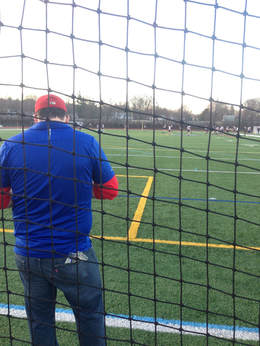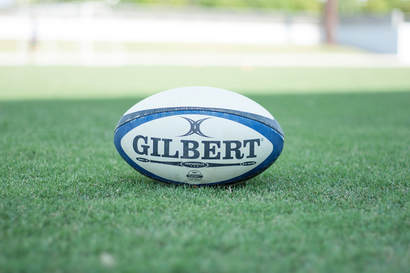|
Happy Almost Independence Day my fellow Americans, hoping you all have something fun planned, because what is life without a bit of fun right? Today's post isn't so much about strength and conditioning, but still plenty to do with coaching. It's similarly titled and styled after a blog by a rugby coach from South Africa, Ross Munro Williams, find his blog here. Anyone that doesn't already know, I took a head coaching job for a high school rugby team this past spring, this post includes the things I believe I've learned. I’ll be truthful with you, I definitely have had ambitions of being a coach for a while. It started early in my college days, I got a chance to go back and help the youth rugby team I played for in Portland (Go Pigs). When I did it, I felt like I was giving back to the team that showed me the game I love. Honestly, at first I did it because I felt obligated, but it felt like more than that after by the second practice I helped with, something more significant, something special. After college I figured out if I was going to ever coach, I definitely wanted to do it at the college or high school level. It’s cliché, but you get to meet more people and, hopefully make more positive impacts in those settings. After living in Boston for a few years a chance to start coaching came up, hey what luck! I applied and was brought on to be an assistant at a local high school. After being the assistant for a couple years, the head coach moved to another head coaching job. Some poor fool decided I was going to be the next person to take charge. All kidding aside, I was really excited to take the reins. When you’ve had a time to think on it before you take your first job, you have an idea in your head about the type of coach you want to be. I certainly hope I was able to be a good coach, even if it wasn’t exactly what I had in mind. It’s been a bit more than a month since we close the books on the season, so I’ve had a bit of time to reflect on it, here’s what I think I learned in my first year; Plan and over plan for training sessions (ie practices); I knew I'd need a plan for trainings every day, but there was 1 day I made the huge mistake of not having enough planned. Thus, I was left scrambling for what drill or game would go with the theme of the day. With the players as smart they were, they saw it too. I only made that mistake once. I didn’t have everything planned right down to the second, but I certainly tried to keep a schedule, so we got in what we needed and weren’t left with loads of dead time. Lesson learned: Have plenty of extra drills in your back pocket (and not just the usual standbys neither). Take that plan and toss it out the window; Sounds contradictory of what I said above, but read on. Before the season started I had a general idea of how I wanted certain skills and portions of the game to build on one another. For those that don’t know, rugby is not a sport that is often played before the youngins get to high school. Every once in a bit, you get a player whose dad or mom played and taught them the basics, that's it. With that, we have to teach players at warp speed how to play the game, at least with my team. Reason being is that some of these newbies are going to get thrown right into their very first game. Digressing back, I had how I wanted to build up the skills planned out perfectly…or so I thought. After our first game I was defiantly forced to throw that plan right into the fire and adjust. I decided to not have a plan for more than two weeks ahead, that way if I needed to adjust, it wasn't a ton of time wasted and rearranging of things entirely. Lesson learned: Have adjustments ready, for all times and situations. Each player is a different individual; In the grand scheme you obviously want to be consistent across the board in every situation you can and treat every player the same. It’s not always so simple, each player needs to be coached and dealt with in different manners. Being a strength coach and working with people has already taught me this, but it's something I wanted to make sure was noted in this. Case and point, I’ve coached brothers on this team in various years and each of them responded differently to certain methods of coaching. Players personalities are likely what makes your team great because of the chemical balance within the team, still have to guide all of those personalities to pull in the same direction. The big thing I learned here is when you treat the players like adults, and with respect, you’ll get it reciprocated. Yes they are still young adults in high school, but they just want a little of what Dangerfield couldn’t get, that’s all. Lesson learned: Treat them as you expect to be treated You need your own support system; Holy smokes I did not realize this one, but looking back on the season I would’ve completely lost my mind if I didn’t have the people helping me that I did. Obviously starting at home with my wife and family, friends and teammates, then there were people like the AD and assistant AD, and other coaches, both with your team and on the opposing ones as well. As a first-year coach you definitely lean on them all. I’m certainly one that’s ok with not being the smartest one in the room, that said, if it remains that way year after year, there’s a seriously problem and it’s probably me. Still learning all the extra administrative and organizational stuff, but thankfully I have some to help fill the gaps. Lesson learned: You can’t do it by yourself, ever. Make sure it’s fun; I almost got caught ignoring this one in my first year. The first couple of games shook me awake for it. We did not have a successful year in terms of what the final scores were, but I considered it a giant win that each player still enjoyed their season. I’m one that certainly is passionate about the teams I support when watching sports, and passion in coaching is good, but you have to park it sometimes as to not detract from the atmosphere you’re trying to build. Of course I got mad and did a little yelling, I really hate yelling believe it or not, but I tried not to let it be the thing players, opponents, officials and parents, knew me for. Lesson learned; Don’t take it so damn seriously, it’s just a rugby game. This sport is a hard one on both the body and the mind, but at this level I love it because it can teach so many hard life lessons. Sometimes people screw up and you get the blame, sometimes you’ve done something well and the credit goes to others, and sometimes you put it tons of effort and don’t get the results you want. Other things I’m still learning are things like: -Players energy management -Recruitment -My own energy management -Homework and practice attendance -And a host of other little things I’ve definitely missed I'm sure the things I've learned will evolve and maybe there will be things I unlearn, for good reason, as I continue through coaching a team as the head man. In the meantime, I'm just going to enjoy the ride and focus on enjoying it while spreading the good word of the book of rugby. Anyone that ever has a question about this or any of my blogs, please feel free to contact me and I'll see you all next time. Enjoy your 4th of July America, then go out and get after it.
0 Comments
Leave a Reply. |
Details
AuthorJarrod Dyke, CSCS Archives
July 2024
Categories |


 RSS Feed
RSS Feed